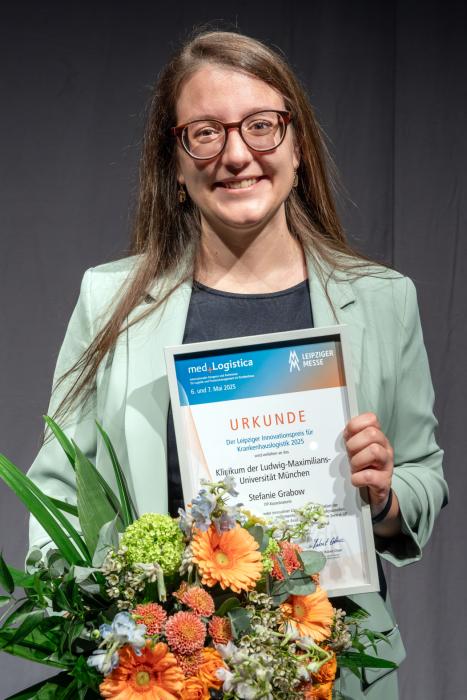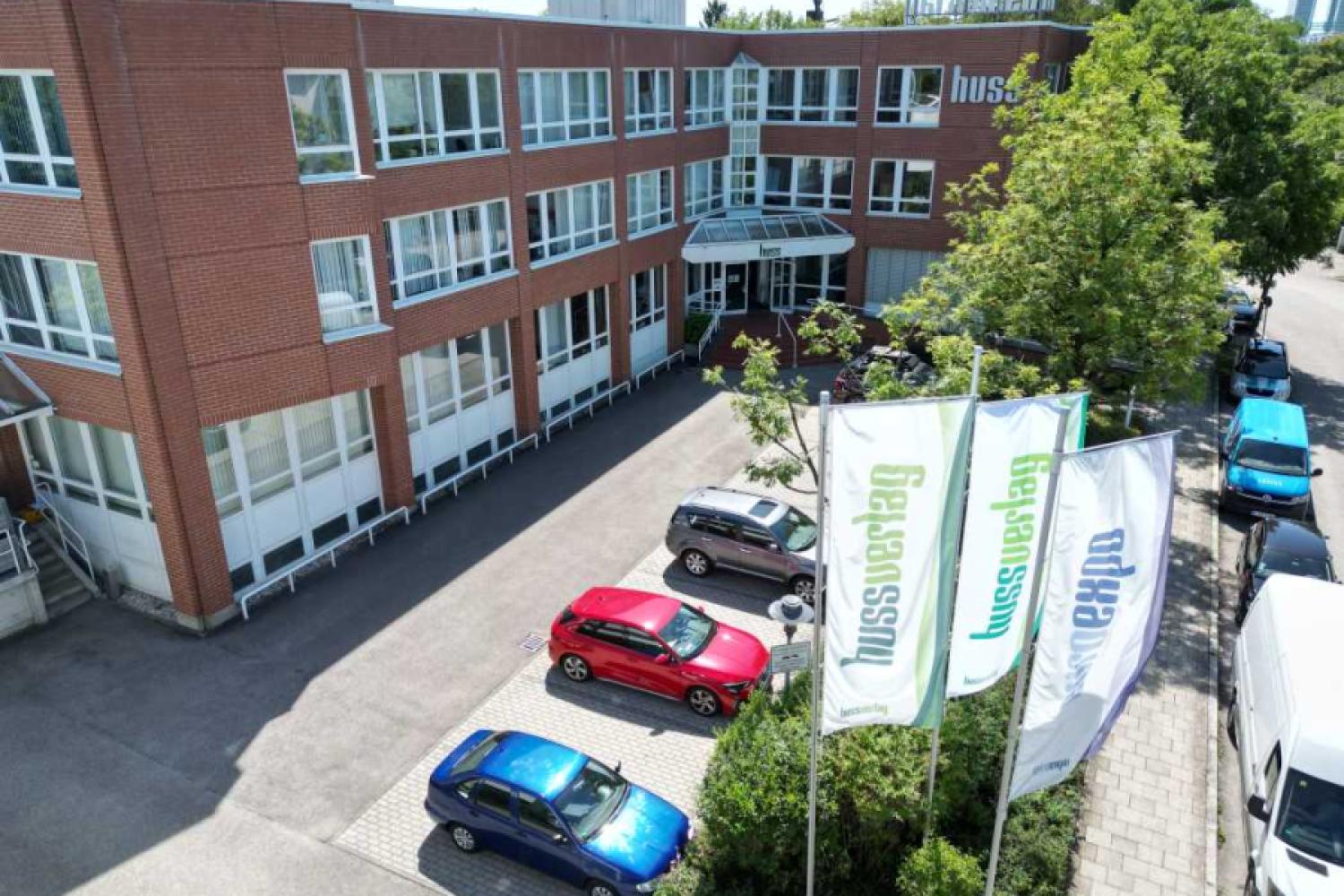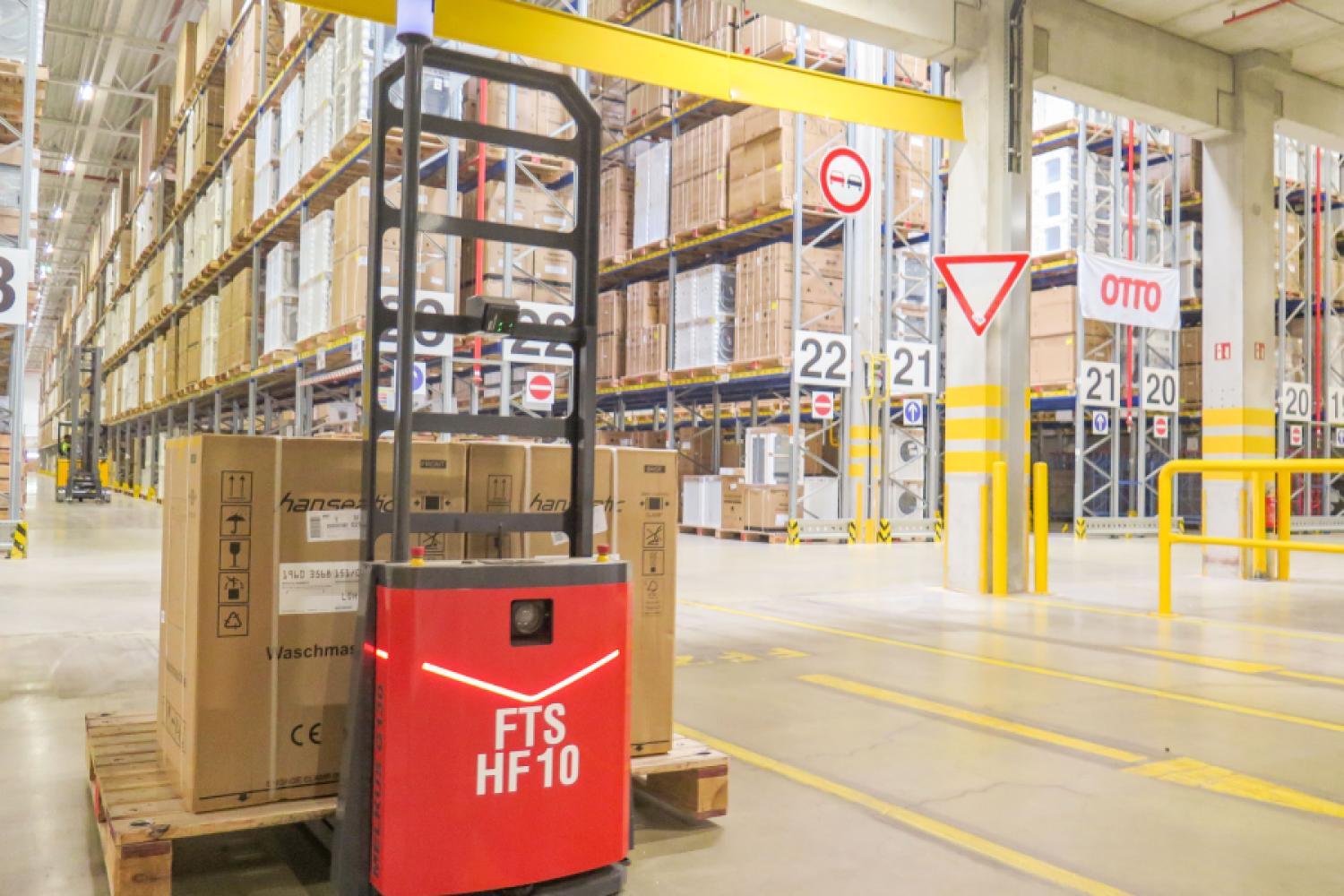“Implementation of a multiprofessional communication platform in the form of the Digital Assistant by Sqior in the Central Operating Room of the Ludwig Maximilian University Hospital in Munich” is the full title of the project honored with the 5th Leipzig Innovation Award for Hospital Logistics, submitted by Stefanie Grabow, OR Coordinator at the LMU Munich Hospital. Its implementation impressed the nine-member jury with its great practical relevance and innovative strength.
High-Level Information Logistics
“This year, we are honoring a groundbreaking example of information logistics. Information flows are perfectly channeled through a digital assistant so that all involved parties are supplied with the right information at the right time and place. This significantly increases efficiency in the central operating room. Ultimately, this benefits patients, increasing their safety and reducing potential waiting or even anesthesia times,” explains jury spokesperson Prof. Dr. Hubert Otten, head of the Competence Center eHealth and professor for Technical Systems, Operational Organization, and Logistics in healthcare facilities at the Niederrhein University of Applied Sciences.
“We selected this
project from more than a dozen submissions from Germany and Switzerland. It has high multiplier value because other hospitals' central operating departments can benefit from the experiences of this Munich project,” emphasizes Otten.
Preventing Idle Time in the Operating Room
The Munich project aims to prevent costly idle time between operations or delays due to prone communication channels and transparently document the status of interventions. Until then, information exchange between the involved professional groups had primarily been manual and via telephone, says Otten. The OR program was a confusing list that did not contain essential planning information. “Now, a digital assistant is used, an app that can be operated on tablets, smartphones, and PCs. It connects all involved individuals efficiently, improving coordination and planning,” he emphasizes. This ensures that patients and OR teams are on-site in time and all preparations are made: “Digital timestamps support OR logistics. There is less idle time. Surgeons can, for example, inform how long they still need for the suture. Based on this, subsequent
processes such as patient transport are adjusted or initiated. There is an interface to the corresponding software.”
On May 7, 2025, the award-winning project will be presented at the med.Logistica congress (“Towards the Future with the Digital Assistance System and Smart Processes – Sqior in the OR of the Ludwig Maximilian University Hospital, Munich”; 12:00 PM to 12:30 PM).
Excellent Theses on Pharmaceutical Logistics and Hospital Management
The young talent award Thesis Award, endowed with 1,000 euros, was also presented for the fifth time. For the first time, three student theses were recognized for their concepts for process optimization in healthcare. “This year, applications were submitted from Germany and Austria. All were of a high level, so we decided to award not just a 1st prize but also a 2nd and 3rd place with additional prize money,” explains Prof. Otten. “While the main prize and the 2nd place award-winning works focus on pharmaceutical logistics and medication supply in an innovative way, the 3rd place work on hospital management demonstrates
a very good methodological level.”
The 1st prize of the Thesis Award went to Carollyne Gomes de Franca Valle (FOM University of Applied Sciences for Economics & Management, Essen Campus) for her work “Quality Strategy to Reduce Errors in Hospital Medication Logistics.” “The focus is on improving medication management to reduce errors and increase patient safety, including specific cost calculations,” emphasizes jury chairman Otten.
The 2nd place went to Michelle Scott (FOM Essen Campus) for her work “Optimization of Pharmaceutical Logistics in Hospitals: A Cost-Benefit Analysis of Manual and Technology-Supported Medication Supply Processes,” also focusing on minimizing medication errors in hospitals. The jury chose the work “From Lean Management to Lean Hospital: Efficiency Optimization and Challenges Using the Example of the Administrative Area at the LKH-University Hospital Graz” by Miriam Primicheru, MBA (University of Applied Sciences Burgenland), for 3rd place, which examines the application of lean management principles in hospital administration with a special focus on economics/logistics.
All winning works are on display as poster presentations at the med.Logistica.






